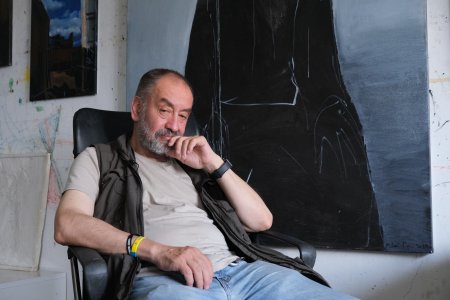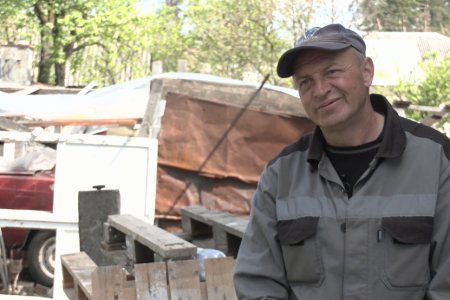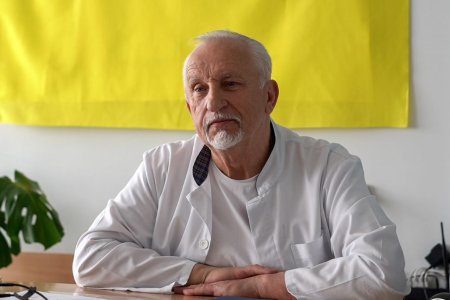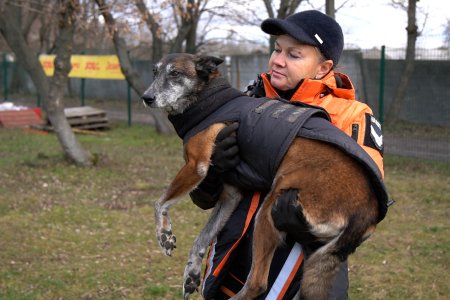Roman Goldman, FRIDA project idealogue
The Donetsk Region made a tremendous impression on me even though I served in Israel, in the army, and was in hot spots in Lebanon and Palestine. But the Donetsk region touched me a lot, perhaps even traumatized me a little, because I saw the pain of people who suffered from their neighbor’s madness — from “friends” who live nearby. Of course, the FRIDA project and Bakhmut made a strong impression on me this year. I realized that it was impossible to stop, that the war had acquired a protracted phase. Every time we thought, well, one more ambulance, we will save someone else. However, I knew that the war would be prolonged.
After Bakhmut, I realized it was impossible to stop. We will help even more. Probably, there has been a transformation, a reboot of spiritual and moral values.
When we worked with children in Bakhmut, I saw how children live for many months under shelling, going out in the morning to see the sun and winter at least a little. It gave me a complete rethinking of my life both as a volunteer and a representative of white medical coats. It was perhaps one of the most striking human emotions.
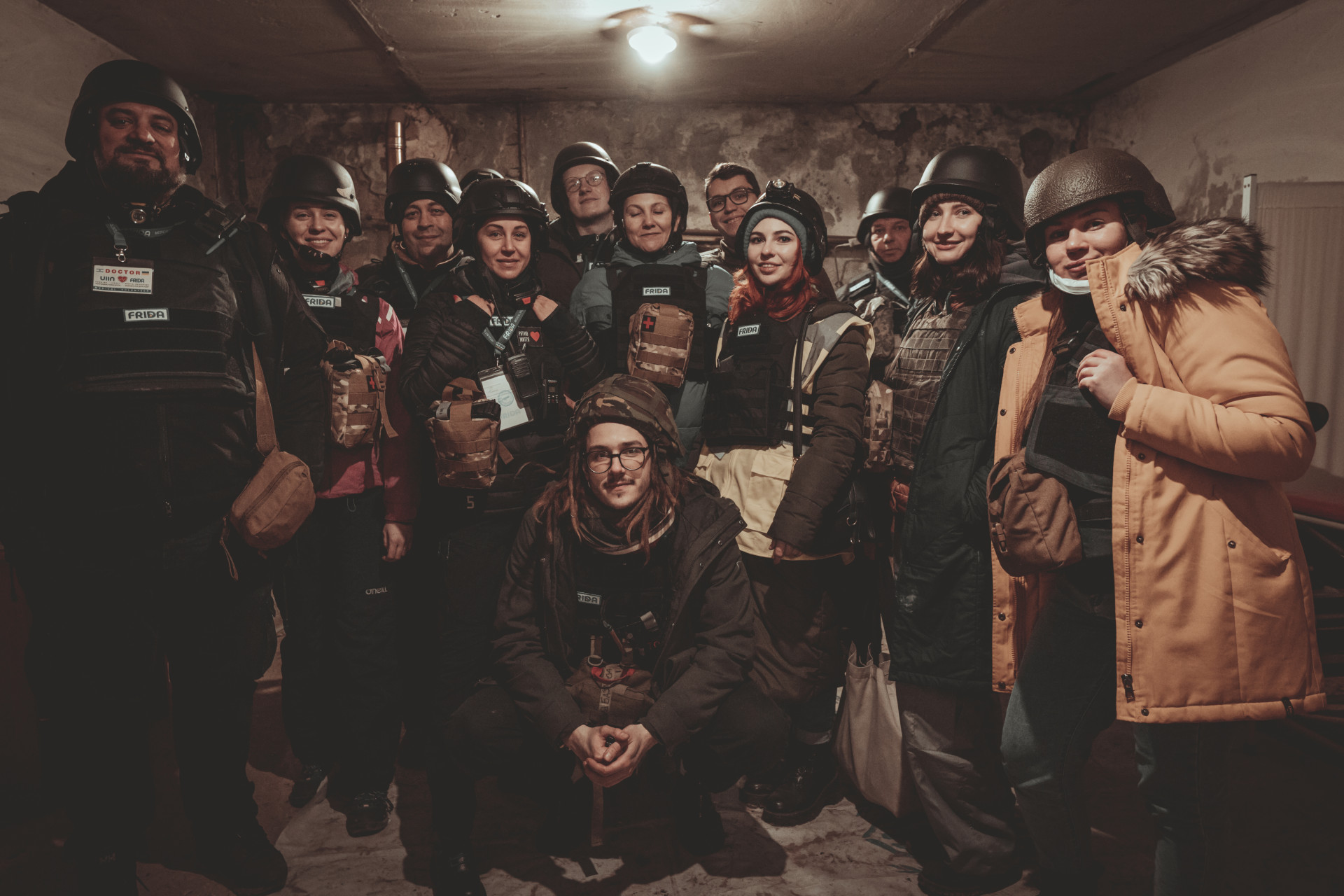
Vladyslava Romaniuk, volunteer doctors captain of the FRIDA project
I immediately remembered two locations. The first was the Kharkiv Region, Lyptsi, not so far from Kharkiv, up to 50 km. At the moment when we arrived there, it was some kind of exclusion zone. The road we were driving on was covered with unexploded ordnance. There were also shells in the houses and around. There were no people when we arrived at the reception place; it was one of the buildings that was half-preserved — something like the House of Creativity. Several rooms were destroyed, and half were mined; the invaders once lived in them. When we arrived there, the broken glass was everywhere. Torn things and some boards were all around. We saw this and realized that we and the team must pull ourselves together. Firstly, we need to hide the transport, and secondly, we need to make ourselves a place for reception. What does a doctor need? The doctor needs a table and a chair (already a VIP condition). We need a couch or something where someone can lie down to conduct an ultrasound and an EKG.
Opposite this building was a hospital where the invaders lived for over eight months. The Russian military lived there on all floors. Naturally, it has already been examined several times by the relevant services. We went there with the village headman to find some couches and tables. Probably, it was not the best idea because we understood what our neighbors left behind, but after 30 minutes, we began to receive people.
In places like this, we are not talking about quantity at all. We are talking about these people being in a vacuum, alone. They can’t call an ambulance or even go to the military because there’s nobody.
If I’m not mistaken, we took three people to the hospital on that day: these were urgent cases. It was a heart attack and acute pancreatitis. Since we had some equipment, we could establish these diagnoses and make a record. We took them away in our ambulance.
Bakhmut impressed us tremendously. You were there with me. When we were a relatively small team on armored vehicles, about 13-15 doctors in helmets and bulletproof vests, prepared for what we might see, we received patients in bomb shelters. They were also the Points of Unbreakability, but essentially just underground rooms with a few chairs and maybe one sofa. We performed gynecological examinations there, ultrasound, and mini-operations because people had suppurations that surgeons needed to examine and treat.
Then there was that story with a military man. It was a difficult situation. In Bakhmut, there were already street battles several streets away, and our soldier was injured. The military doctor saw our ambulance as we were about to leave. He saw that there were doctors among us. He said he needs to return to his duty, and we must pick him up [the military] and take him away. In 5-7 minutes, we got to a place where we treated him right on the floor in front of the entrance because the building was packed with military men. Since I have already begun to tell this story, I will complete it because it has a happy ending. Unfortunately, we were sure our help would hardly be successful at that moment because he suffered a lot. It was damage to all limbs and shrapnel wounds in the neck. But a week later, he was already in the hospital and came for a consultation with our ENT. It was a coincidence, but we visited him, and thank God, he is doing well.
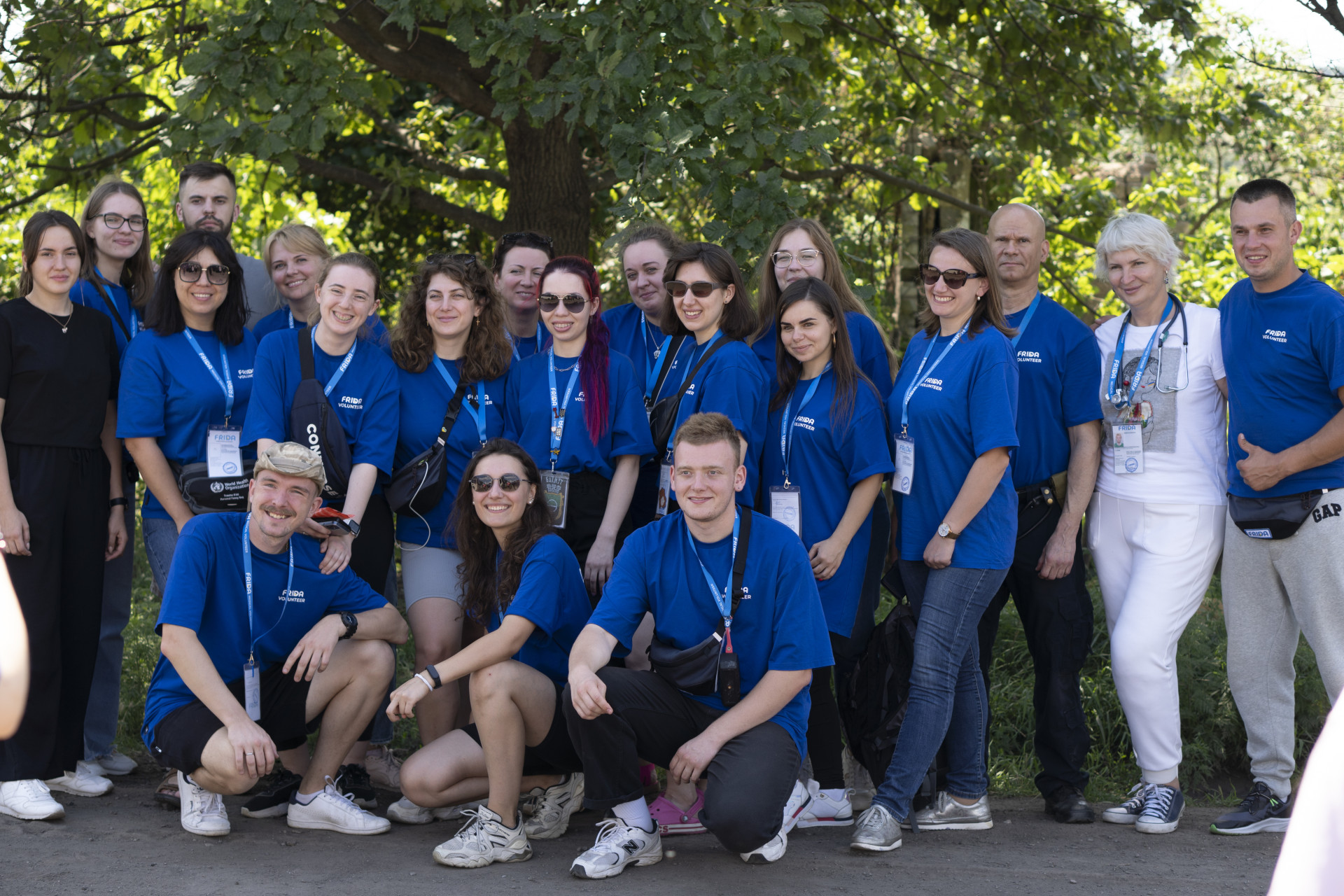
So, a military medic suddenly saw your car in Bakhmut. Did it happen that you unexpectedly helped this man in Bakhmut in the Donetsk region, and then over time, this military man ended up in a hospital where your FRIDA volunteer doctor assisted him again?
Yes.
So you are everywhere, and it is impossible to hide from you.
Impossible, yes. Perhaps he wanted to hide somehow but did not succeed.
We know that doctors and medical institutions where any medical care is provided are guaranteed to be protected from attacks: international law prohibits the bombing of such institutions, and they must somehow be protected at the international level. Ambulances cannot be fired upon. You have seen what such institutions look like in the frontline zone, in the de-occupied territories, and, as far as I know, you even came under fire when helping people. What can you tell about it? To what extent does our adversary adhere to these norms?
Of course, we all understand that there are no rules of law here. I and the people with whom I communicate never admit the thought that if doctors come with medical help, they may be targeted like other people.
